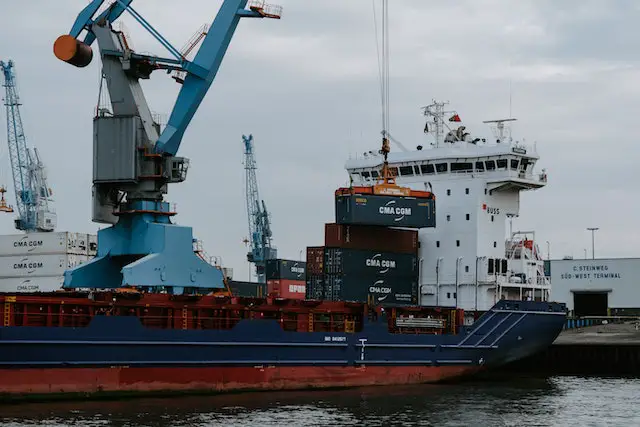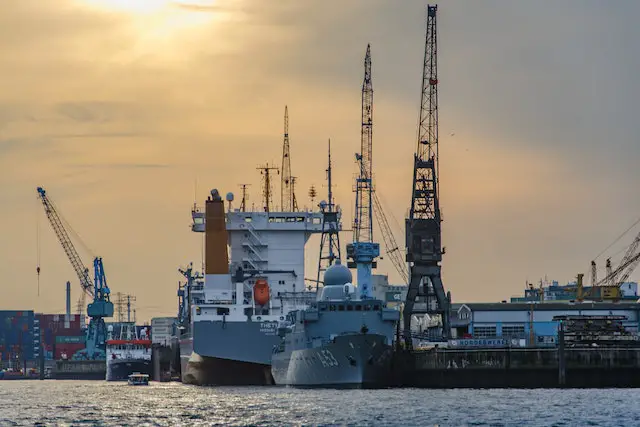The importance of transport in trade is indisputable and can be seen in various aspects. It allows businesses to move goods and services quickly, conveniently, and efficiently.
Transport plays a crucial role in the development of economies by enhancing economic productivity as well as connecting countries with each other. In this article, we will explore the importance of transport in trade.
15 Benefits of Transport in Trade
Transport in trade is beneficial in multiple ways. Here are 15 reasons for the importance of transport in trade.
1. It facilitates the exchange of goods and services
Transport helps to move goods between producers and consumers in different geographical locations quickly and efficiently. This reduces delays in the supply chain and ensures that customers get what they want quickly.
It also helps to create connections between different markets, allowing producers to access new customers and suppliers. This increases competition in the market which can help reduce prices and increase the quality of products.

2. It reduces costs associated with transportation
Transport helps to reduce the cost of transporting goods. By providing an efficient transport network, businesses can save on fuel costs, transportation time, and labour associated with the movement of goods.
We can also see the cost-effectiveness of transport in trade when goods are shipped over long distances. It is much cheaper to ship goods than to transport them by land, which helps businesses lower their transportation costs and improve their profit margins.
3. Transport in trade increases the sale of goods and services
Transport improves access to markets for producers and consumers alike. This can help increase sales for businesses as they have more customers to sell their products or services to.
For instance, businesses that are based in remote areas can now access the global market with the help of transport networks. This will help them increase their sales and profits. So, transport can have a positive impact on the bottom line of businesses.
4. Transportation in trade helps to reduce environmental emissions
Transport has a significant impact on the environment. By improving transport infrastructure, businesses can reduce their carbon footprint by reducing emissions from transportation vehicles. This helps to reduce air pollution and climate change.
Through the use of electric vehicles, transport in trade can also contribute to lower emissions and improved air quality. This is especially important for businesses that rely heavily on transportation for their operations.
5. Transport in trade increases job opportunities
The transport sector provides numerous jobs in various industries, such as logistics, road transport, aviation, and marine transport. This increases employment opportunities in the economy.
Additionally, the transport sector can also help to create indirect jobs in other industries by improving the flow of goods and services. This will help to boost economic activity and increase job opportunities for people.

6. It improves access to resources
Transport helps businesses to access resources such as raw materials quickly and efficiently. This allows businesses to produce goods or services more quickly, reducing production costs and creating higher profits.
The improved access to resources also has a positive impact on the environment by reducing emissions associated with the transportation of goods. This helps to reduce air pollution and protect the environment.
7. Transport in trade boosts economic development
Improved transport infrastructure can help to increase economic development. By reducing the cost of transportation, businesses can access new markets and increase their profits. This helps to create more jobs and generate income for the economy.
We can also see the impact of transport on trade when businesses access new markets, which increases competition and leads to lower prices for consumers. This helps to improve living standards across the economy, reducing poverty levels and increasing economic development.
8. Transport in trade enhances customer service
The improved customer service provided by businesses can also help to increase sales as customers are more likely to buy from companies that provide a good experience.
Transport helps businesses to provide better customer service as they can deliver goods quickly and efficiently. This improves customer satisfaction and loyalty to the business. Therefore, transport in trade can help to increase sales and improve customer service.
9. It reduces wastage
Transport helps to reduce the wastage of products as goods can be delivered quickly and efficiently, reducing the amount of time that perishable products are stored in transit. This ensures that customers receive fresh and high-quality products.
Waste reduction also helps to reduce the environmental impact of businesses as they use fewer resources in their production and transportation processes. This helps to protect the environment and preserve natural resources.

10. It helps businesses meet customer demands
Transport helps businesses to access markets quickly and efficiently. This allows them to meet customer demands quickly, reducing delays in the supply chain.
We can also see the impact of transport on trade when businesses are able to access new markets and create a larger customer base. This helps to increase revenue for businesses as they can sell products in more locations. Additionally, this increases competition and leads to lower prices for consumers.
11. It improves the competitiveness of businesses
Transport makes it easier for businesses to compete with each other by providing access to new markets and customers. This increases competition which can help reduce prices and improve the quality of goods and services.
The improved competitiveness also helps businesses to create a strong presence in the market, which can lead to increased sales and profits. This helps to generate economic growth and create jobs in the wider economy.
12. Transport in trade creates new business opportunities
Transport helps to create new business opportunities as businesses can access new markets and customers quickly and efficiently. This increases the potential for profits and growth in the economy.
New business opportunities can also be created by the improved efficiency of transport. By reducing production costs, businesses are able to lower prices and increase their sales. This helps to create jobs and generate income for the economy.

13. Transport in trade enhances trade between countries
Improved transport infrastructure makes it easier for businesses to access customers and suppliers in other countries. This encourages international trade, which can help to increase economic growth and prosperity.
Through improved transport, countries are able to exchange goods and services quickly and efficiently. This can help to reduce poverty levels as businesses generate income for the economy through international trade.
14. It helps businesses to maximize efficiency
Transport reduces delays in the supply chain, allowing companies to deliver products quickly and efficiently. This increases efficiency in the production process, reducing labour costs and improving profits.
Additionally, transport helps businesses to reduce wastage as goods can be delivered quickly and efficiently. This helps to improve the efficiency of the production process, maximising profits for companies.
15. Transport in trade promotes regional integration
Transport helps to connect different regions with each other, creating a global market. This encourages businesses to trade with each other, creating opportunities for economic growth and development.
It also helps to promote cultural integration as people are able to interact with each other more easily. This helps to create a shared understanding and leads to greater collaboration between different countries, regions and cultures.
Conclusion
Transport has a huge impact on businesses as it helps to reduce delays in the supply chain, improve competitiveness and create new business opportunities. It can also help to promote regional integration and encourage international trade.
The improved efficiency of transport also helps businesses to maximise profits and reduce wastage. All these factors make transport an essential part of any successful business.
With this in mind, it is clear that businesses should invest in transportation infrastructure in order to remain competitive and maximize their profits.